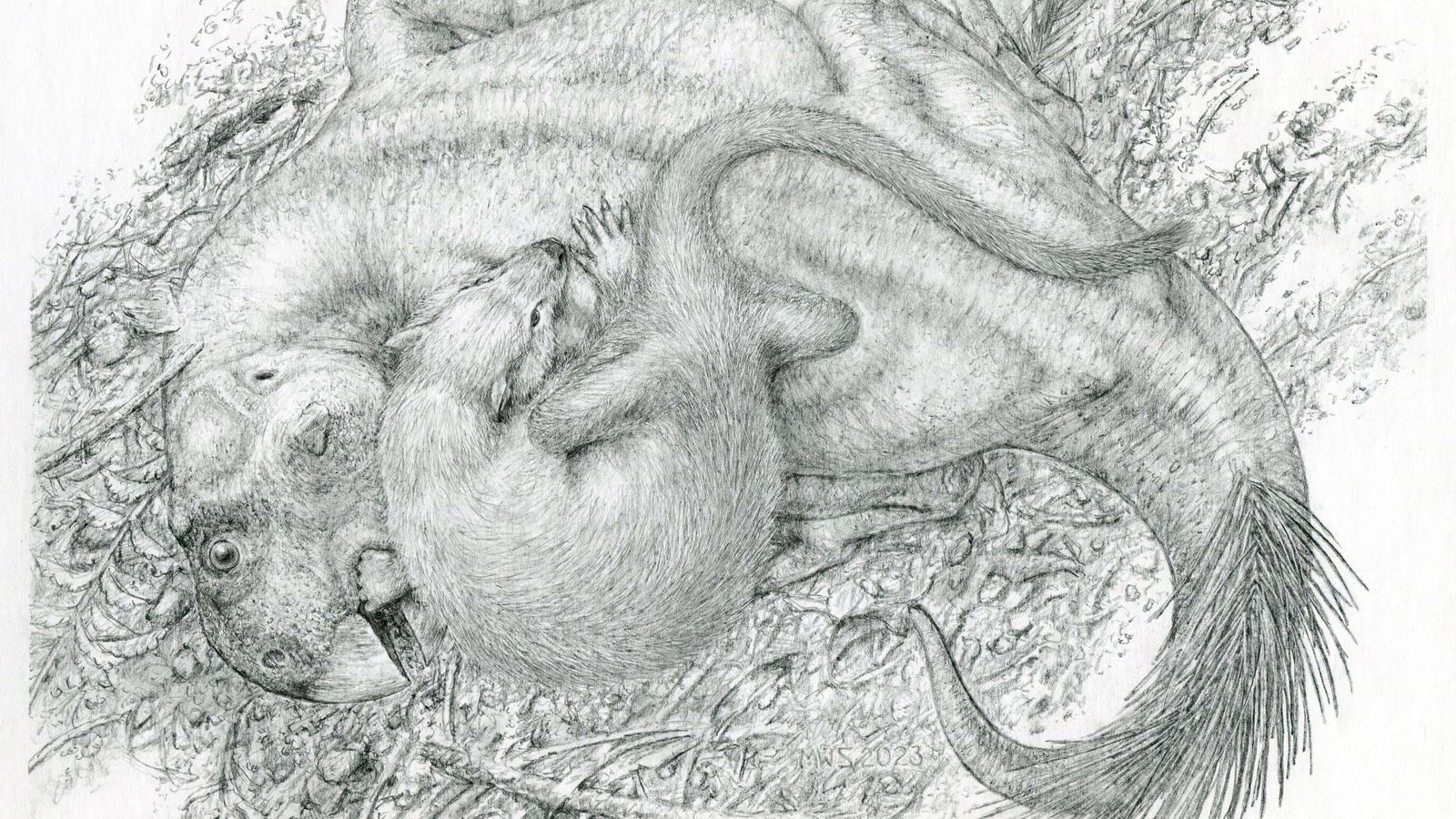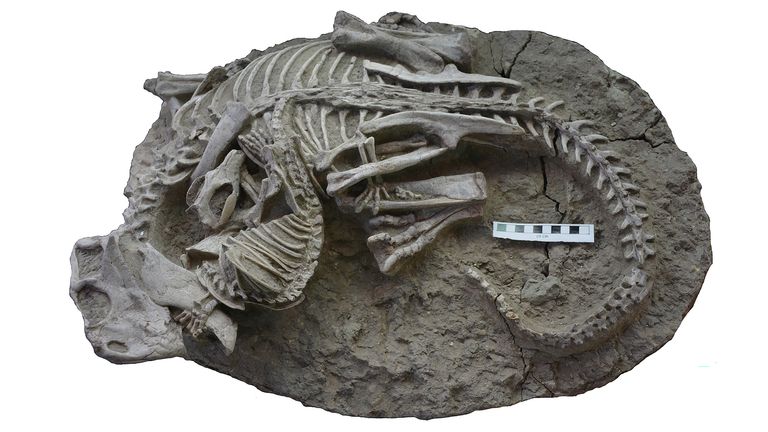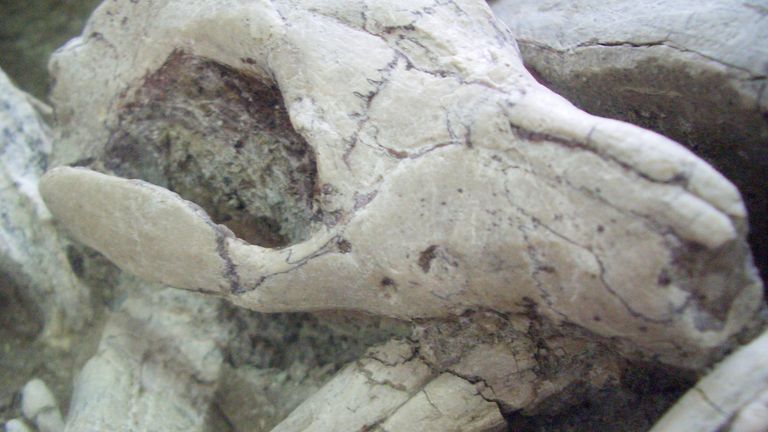A plant-eating dinosaur and a mammal the size of a badger have been found “locked in mortal combat” from 125 million years ago.
The fossilised remains, believed to be among the first evidence of a mammal preying on a much larger dinosaur – about twice its size – were discovered in Liaoning province in China.
The researchers said their findings question the view dinosaurs roamed the planet unchallenged during the Cretaceous period, from about 145 to 66 million years ago.
Study author Dr Jordan Mallon, palaeobiologist with the Canadian Museum of Nature, in Ottawa, Canada, said: “The two animals are locked in mortal combat, intimately intertwined, and it’s among the first evidence to show actual predatory behaviour by a mammal on a dinosaur.”
The mammal has been identified as Repenomamus robustus, a badger-like animal measuring around 47cm long.
Repenomamus robustus was among the largest mammals during the Cretaceous, a time when dinosaurs were dominant.
Meanwhile, the dinosaur is Psittacosaurus lujiatunensis, a beaked plant-eating creature around 120cm long.
Previous evidence suggest Repenomamus robustus may have preyed on young dinosaurs.
In 2005 scientists found another Repenomamus robustus fossil with the small bones of a juvenile psittacosaur inside its ribcage.
Dr Mallon said: “The co-existence of these two animals is not new, but what’s new to science through this amazing fossil is the predatory behaviour it shows.”
Read more:
New species of armoured dinosaur found on Isle of Wight
Researchers reveal ‘significant’ findings about dinosaurs which roamed south of England 125 million years ago
Teeth seen embedded in ribcage
The well-preserved fossil shows Psittacosaurus lujiatunensis lying flat with its face downward, with its hindlimb folded on either side of its body while its neck and tail are curled to the left.
Repenomamus robustus can be seen lying on top of the dinosaur’s left side, curving to the right.
The mammal’s left paw is gripping the lower jaw of the dinosaur, while its left hind leg is trapped under the dinosaur’s folded left leg and its hind paw is gripping the left shin.
Repenomamus robustus’s teeth can be seen embedded in Psittacosaurus lujiatunensis’s ribcage, suggesting the dinosaur was being attacked when both animals suddenly died, possibly after being caught in mudslides following a volcanic eruption.
The researchers said Repenomamus robustus was not scavenging on the dead body of Psittacosaurus lujiatunensis because the dinosaur bones do not show any tooth marks.
They also believe it is unlikely the animals would have become so entangled if the dinosaur had been dead before the mammal came across it.
‘Weight of evidence suggests an active attack was under way’
“The weight of the evidence suggests that an active attack was under way,” Dr Mallon said.
The mammal may have been eating the dinosaur “while it was still alive – before both were killed in the roily aftermath,” he added.


